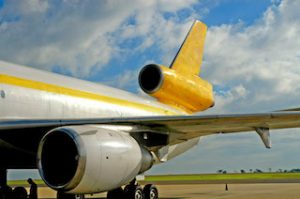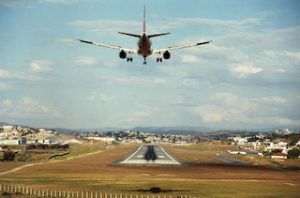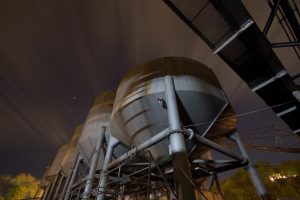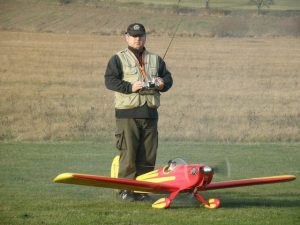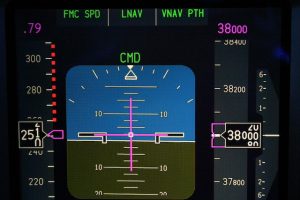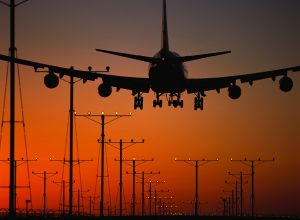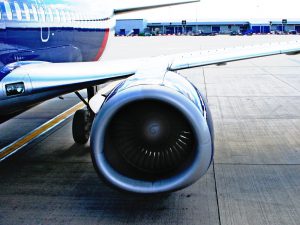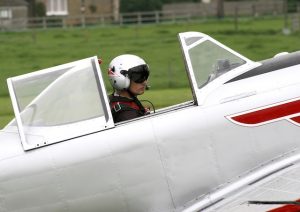From Summer Jobs To Airline Pilot Jobs
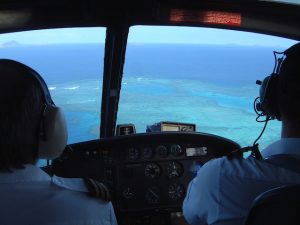 Many airline pilots started with summer jobs that helped them stay afloat while chasing their flying dreams. These jobs paid bills, covered flight lessons, and taught lifelong habits. While many saw summer work as temporary, pilots turned it into a launchpad. Discipline, patience, and hard work grew stronger every season.
Many airline pilots started with summer jobs that helped them stay afloat while chasing their flying dreams. These jobs paid bills, covered flight lessons, and taught lifelong habits. While many saw summer work as temporary, pilots turned it into a launchpad. Discipline, patience, and hard work grew stronger every season.
Summer jobs plant early seeds of responsibility
Summer jobs demand time discipline. Pilots learn early how to show up, stay present, and complete tasks on time. These jobs reward commitment. Showing up daily, even when tired, builds inner strength. This habit later supports long shifts and early check-ins in flight training.
Learning to work under pressure
Fast-paced summer jobs create pressure. Handling impatient customers, rushing through tasks, or facing long hours builds mental strength. Pilots need this strength. Each takeoff demands calm thinking. Many who once served coffee or cleaned tables use that patience today in the cockpit.
Saving for the first flying lesson
Flight school is expensive. Summer jobs help cover the first few hours in a training aircraft. Many pilots worked extra shifts. They skipped parties and weekends to build up flying hours. These sacrifices created focus and built resilience for long careers.
Building communication skills early
Summer jobs teach people skills. Whether working in retail or cafes, pilots learned to speak clearly and listen well. These early conversations later became cockpit briefings, air traffic messages, and crew planning talks. The ability to connect starts early and grows stronger with time.
Time management starts on the ground
Balancing summer jobs with studies builds time awareness. Future pilots used calendars, reminders, and schedules to stay on track. That skill grew into perfect flight logs, precise fuel planning, and punctual arrivals. Time thinking began with busy days on the ground.
Developing patience in tough situations
Summer jobs are not easy. Long days, difficult coworkers, or harsh managers test patience. Pilots learn to pause before speaking. They think calmly, even when flights delay or storms roll in. This inner pause begins when mopping floors or sorting inventory.
Seeing the value of hard work
Many airline pilots swept floors, drove delivery vans, or worked farms. Their hands hurt, and clothes smelled. Yet, those jobs taught value. Hard work grew into pride. That pride followed them into aviation, where each flight became proof of how far work can carry someone.
Adapting to new work environments
Summer jobs change each year. A pilot might have worked outdoors one year, indoors the next. Each new setting taught adaptation. In aviation, weather shifts, new airports, or different crews demand the same skill. Flexibility becomes normal through seasonal work.
Handling rejection with grace
Not every summer job application works. Some pilots faced multiple rejections. They applied again and again. This tough skin later helped them through failed simulator tests, interviews, or check rides. The ability to keep going came from those early job hunts.
Connecting money to purpose
Summer jobs paid small wages. Yet each coin had a purpose, fuel, books, or flying lessons. Future pilots tracked each dollar. This money mindset helped them later manage training budgets and career transitions. Purpose made each shift more than just work.
Understanding different work cultures
Working summer jobs in shops, kitchens, or farms exposed pilots to many people. Each culture had its rhythm. Pilots became more open. This openness later helped when flying with crew from other countries. Respect and teamwork often started behind a register.
Using downtime to learn
Not every shift was busy. During quiet hours, pilots read aviation books, watched aircraft videos, or practiced checklists. Learning never stopped. Each moment became a chance to move closer to flight school. This habit of using time wisely never left them.
Handling mistakes and learning fast
Summer jobs bring errors. Spilled drinks, wrong orders, or missed shifts teach lessons. Pilots learned to take ownership fast. In aviation, mistakes must be caught early. That ability to review and improve started with small daily errors on the ground.
Working with people of all ages
Summer jobs bring teenagers, adults, and retirees together. Future pilots learned to listen and adapt. Age gaps melted in team settings. These early people skills prepared them to fly with captains, first officers, and cabin crew of different generations.
Accepting boring tasks with grace
Not all summer work is exciting. Cleaning shelves, folding boxes, or sweeping paths can feel dull. Yet future pilots saw purpose. Each boring task built focus. That same focus helped later during long cruise phases in flight.
Staying healthy during long hours
Some pilots worked summer shifts in the sun or on their feet. They drank water, stretched, and rested. These health habits stayed with them. Flying requires energy and care. Pilots who worked tough jobs early knew how to protect their bodies.
Filing taxes and learning paperwork
Getting paid teaches paperwork. Pilots learned how to read payslips, track hours, and file taxes. These small lessons grew. In aviation, forms, reports, and logs must be clear. That comfort with paperwork began with a basic pay check.
Waking up early without complaints
Some summer shifts start before sunrise. Pilots learned to wake early and show up fresh. These mornings trained them well. Flight checks often begin at dawn. The habit of early starts became second nature over the years.
Taking pride in uniforms
Even in summer jobs, uniforms must stay neat. Pilots learned to wear them with care. These early habits helped build pride. Later, each epaulet and badge felt earned. Respect for the job began with the first name tag or apron.
Facing humility without shame
Summer jobs can feel thankless. Scrubbing grills or cleaning floors can feel low. Yet future pilots felt pride in staying committed. That humility stayed with them. It helped them grow in aviation without ego or arrogance.
Choosing safety every time
In warehouses, kitchens, or farms, safety comes first. Pilots learned early how small mistakes hurt. Safety training stayed deep. Later, in aircraft, they stayed alert. Every check, every lock, and every decision followed the same logic.
Chasing small wins
Summer jobs bring small victories, perfect coffee, a happy customer, or a clean shift. Pilots learned to track progress. These tiny wins became part of a bigger path. Each win gave energy to keep going.
Turning repetition into discipline
Jobs with repeated tasks built rhythm. Pilots learned how to make each repetition better than the last. In flying, repetition matters. Every checklist, landing, or radio call must follow a pattern. Summer work trained that muscle early.
Trusting the journey
Many pilots couldn’t see the cockpit from the shop floor. Still, they worked. They trusted the process. Each shift felt like a step forward. Over time, they saw the path. Summer jobs shaped the way forward through real effort.
Using feedback to improve
Managers often give feedback on small things. Future pilots listened and applied those notes. This habit stayed strong. Later, instructors and examiners did the same. The ability to grow from advice began behind counters and registers.
Staying professional even when tired
Long summer shifts are tiring. Yet pilots stayed polite, alert, and focused. These habits mattered in aviation. Fatigue cannot lead to error. Professionalism grows when the body says no, but the mind says go.
Facing weather and still showing up
Outdoor jobs bring rain, heat, or cold. Pilots didn’t stop. They showed up soaked, sunburned, or frozen. That drive became part of them. In aviation, weather always plays a part. Summer work made them ready.
Keeping eyes on the dream
Every summer job had a goal. Pilots kept thinking about flying. That image carried them through tough shifts. They never lost sight. Every step mattered. Each dollar saved was fuel for their dream.
Building trust
Employers trusted pilots to show up, do their work, and stay honest. That trust meant future jobs. These early reputations carried weight. Trust later became the backbone of flight crews, passenger safety, and airline standards.
Feeling grateful for every opportunity
Many pilots remember summer jobs fondly. Those early shifts paid for wings. The sweat, effort, and time turned into clouds, altitude, and sky. Gratitude grew from humble starts. Every pilot who worked summers knows how far effort can take someone.
Summer shifts to flight lifts
Summer jobs shaped pilots long before they stepped into a cockpit. Each shift taught lessons that flying alone never could. From long hours to tight budgets, the early work tested grit and built a strong heart. Many pilots carry memories of those jobs in their logbooks of life. Each one proves that the journey starts on the ground.

